Iloilo: Nature, Culture, and Geography
Iloilo: Nature, Culture, and Geography
Couldn't load pickup availability
Out of stock
I wrote a chapter for an internationally released volume, Mata-Codesal and Abranches, Food Parcels in international Migration, 2017 The title of the chapter was "When objects speak louder than words: food, intimacy, and power in the contemporary transnational household. My interest in food and culture was clearly shaped by ideas l engaged with.
I opened the chapter with a note on how the late Filipino (and Ilongga) food scholar Doreen Gamboa Fernandez thought of food as an accessible point of entry into Philippine culture and history (Kirshenblatt-Gimblett on Fernandez 2003, 58).
Fernandez herself thought of food as a means of acquiring a sense of identity, As an aspect of everyday lite, it serves as a mirror we could hold up to ourselves, '[offering] an opportunity for selt-knowledge... grounded in immediate experience, embodied knowledge, and personal and collective memory (60), To a group of llonggo OFWS in Hong Kong sharing a meal of pinamarhan and steamed rice, food is not just sustenance. It is a potent and intimate way to experience home (and llonggo-ness) in a foreign place.
Another food scholar, Donna Gabaccia (1998), has called attention to "the symbolic power of food to reflect cultural or social affinities in moments of change or transformation" (9). Yet, she also reminds us that, historically,"the production, exchange, marketing, and consumption of food has [also] generated new identities-for foods and eaters alike" (5), One can imagine, for instance, the role that brands like Starbucks or Cadbury play in articulating and shaping Filipino middle-
class aspirations. Implicit in these understandings of food is the central idea that food serves as the "nonverbal medium for the human creative faculty" (see Douglas and lsherwood 1979, 37, 41) and that, indeed, food is expressive and generative of culture.
Food, like other material objects, have "social lives" (see Appadurai 1986), and doing their biographies by examining how they are culturally understood and/or put to use, or
focusing on their journeys from raw ingredients, to preparation or production, through exchange/distribution, to consumption, can deepen our understanding of the societies within which they are embedded. A bowl of batchoy is not just noodles, spices, and cheap animal bits- its broth is also thickened by stories about our relationship with Chinese immigrants, our historical ties to Mexico and the New World, and the everyday
lives of the toiling masses. its emergence in a public market and not the kitchens of the local elite speaks volumes about its democratic character. Food makes possible our sensorial communion with culture and history. -- Clement C, Camposano Chancellor, UP Visayas
- Free shipping for orders over $150
- Orders are shipped from NJ
- Author and Publisher: Ige Ramos, Vibal Group and Iloilo Festivals Foundation, Inc. (2024)
- Condition: New / Paperback
- Language: English
Return Policy: If you are not satisfied with your purchase, we will be pleased to issue store credit within 14 days.
Share
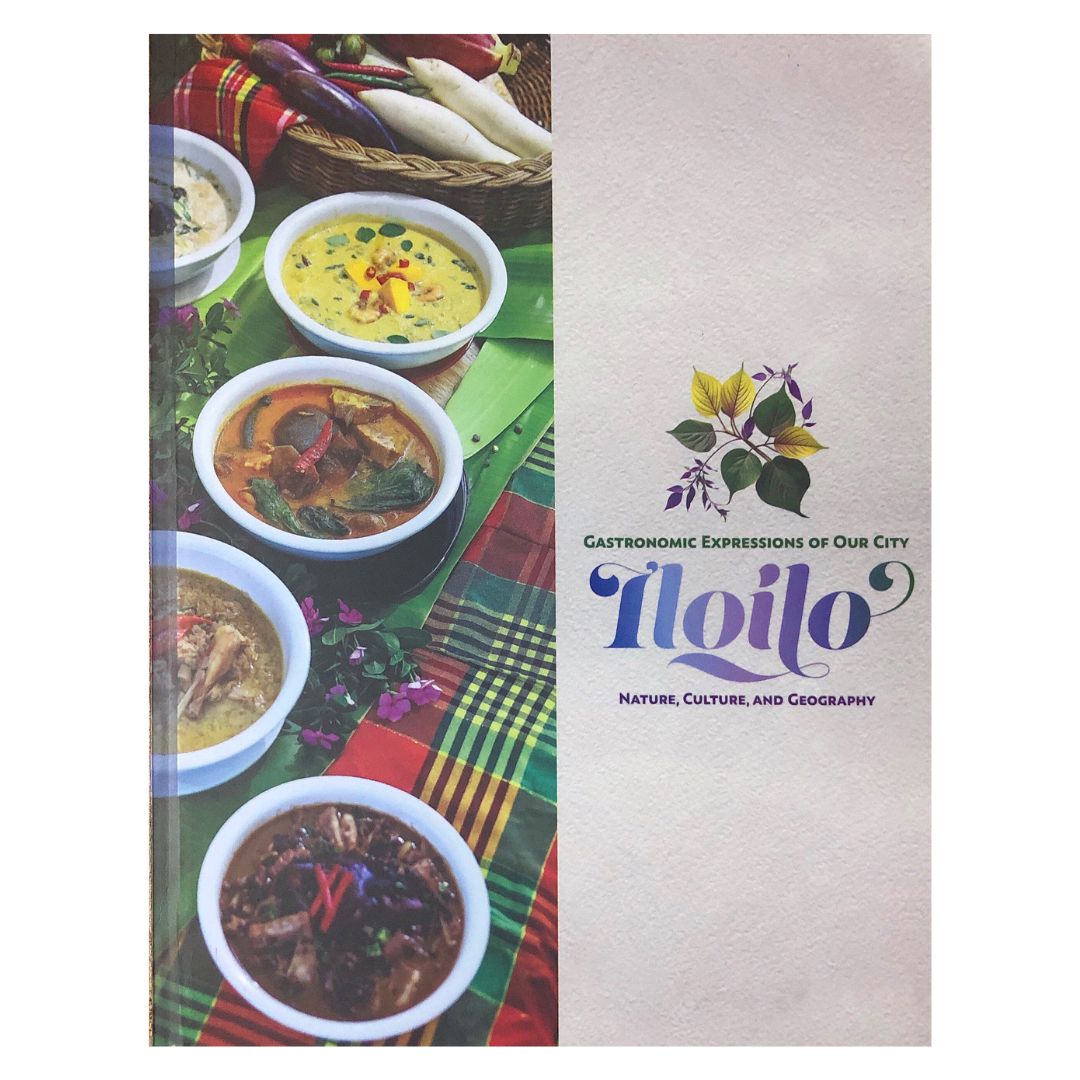
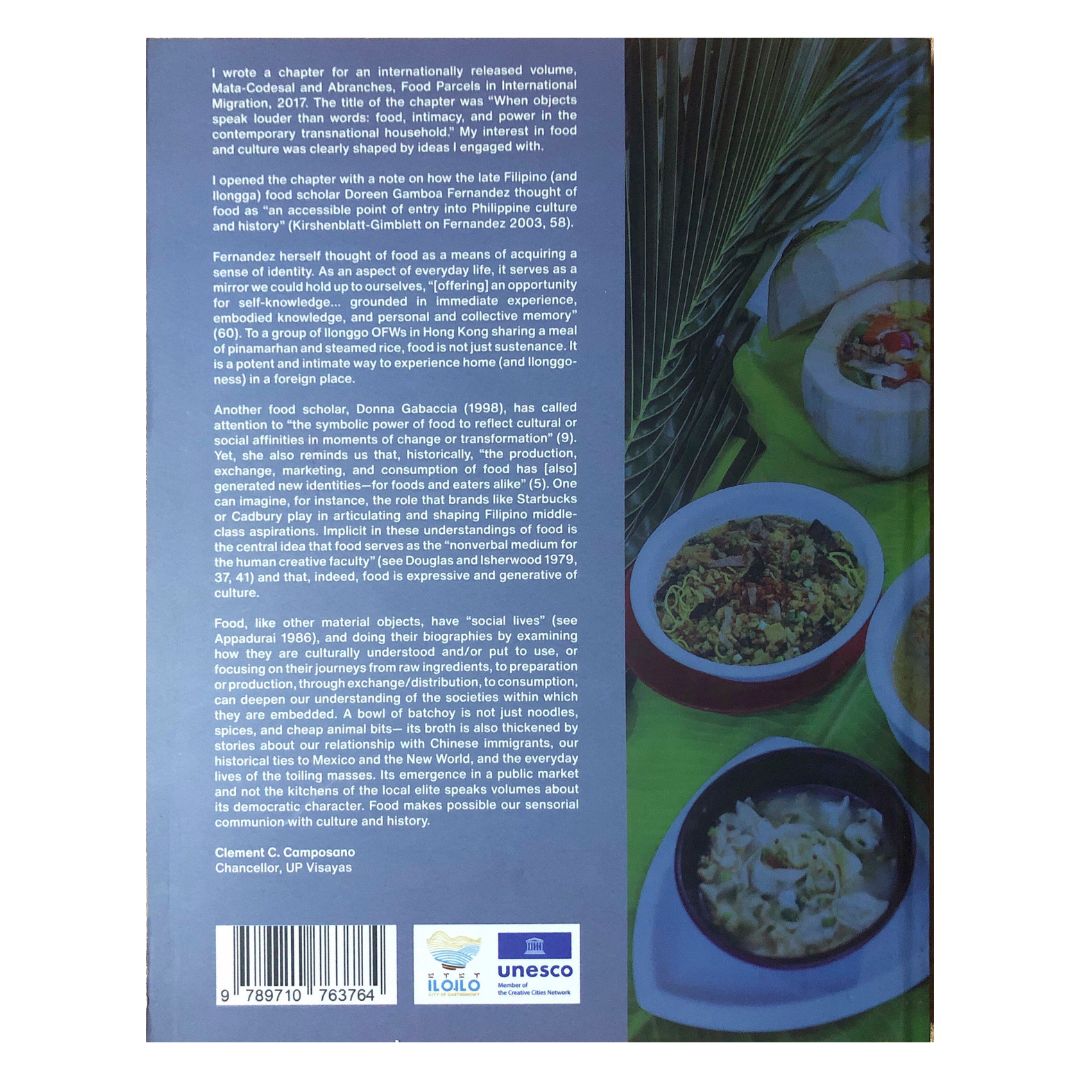
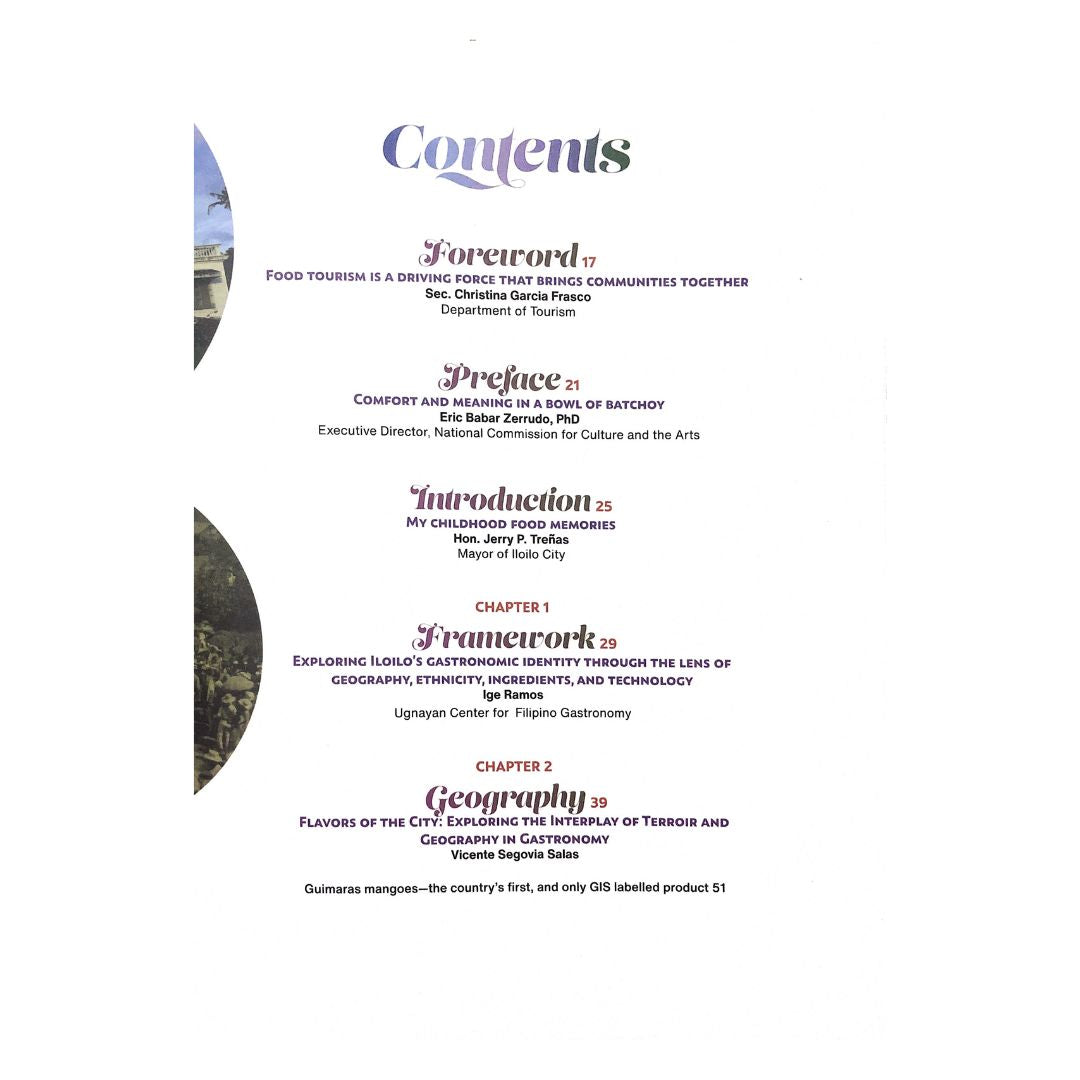
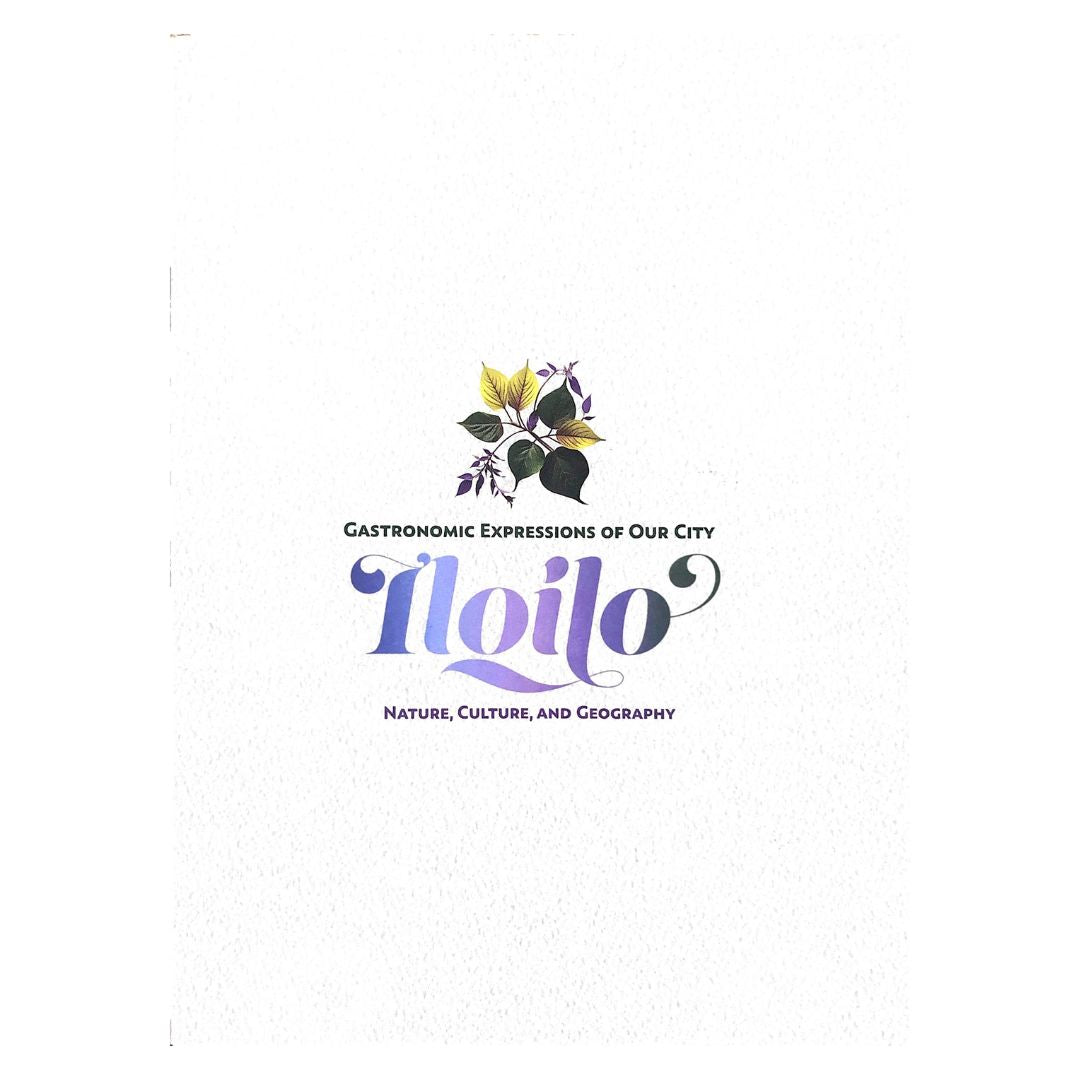
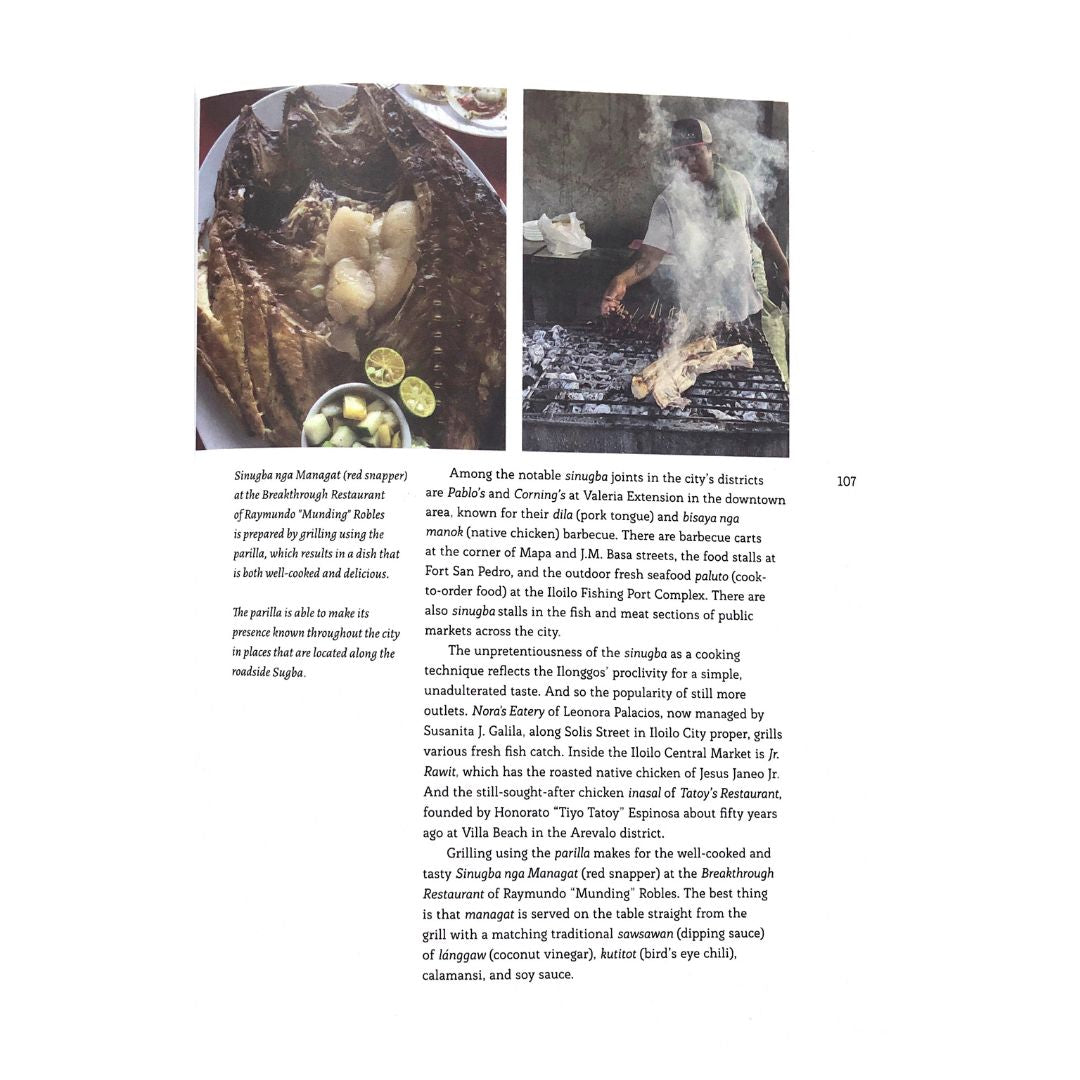

Join our community
Be the first to know about new listings and get exclusive discounts.
No spam. Unsubscribe anytime.






